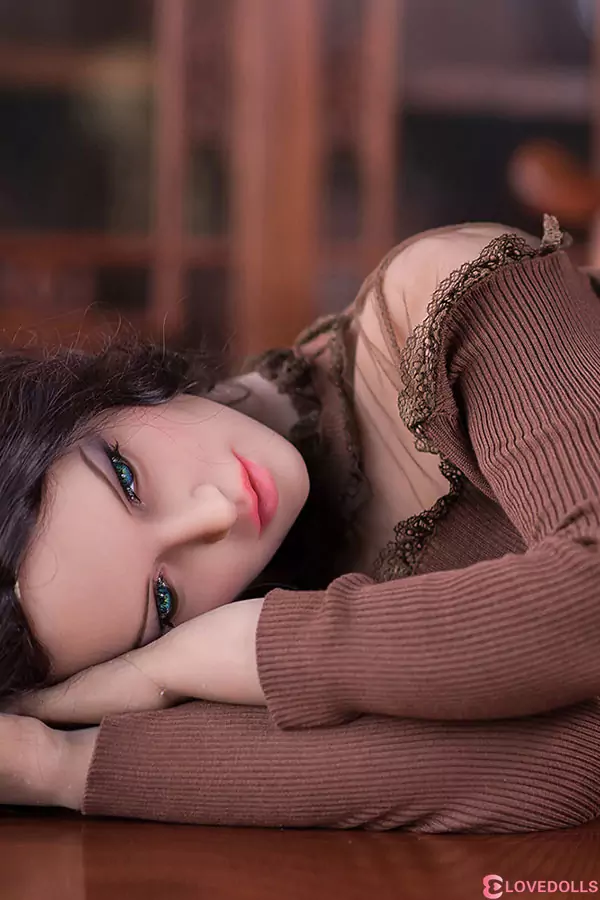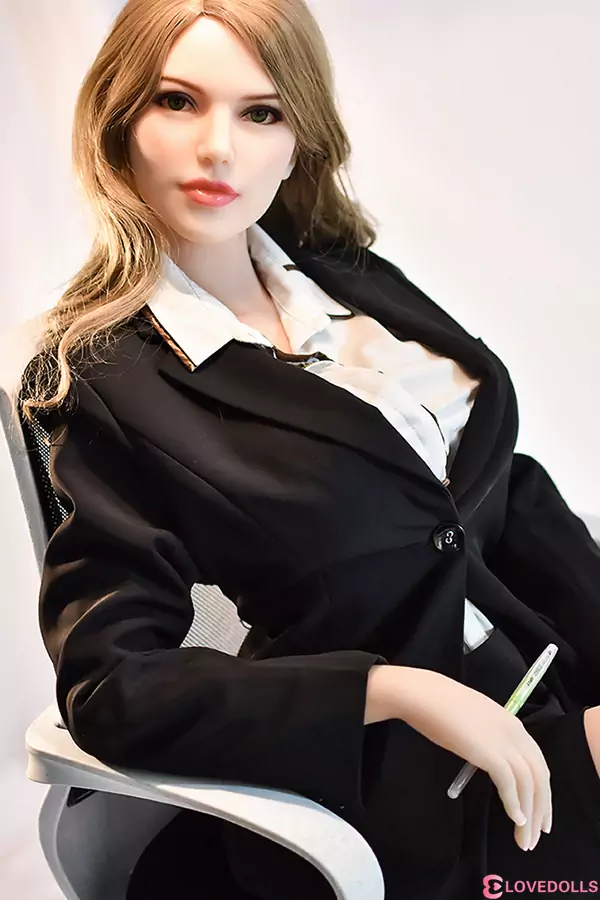sex doll blowjob Relevant Information
(45 People Likes) What is the most expensive sex doll in the market?
ds or masturbation cups, then sex dolls troso are definitely y sex doll blowjob ur best choice. It is easy to clean and store, and can satisfy your fantasy which masturbation cup can not bring to you, because you can touch the doll's body with your hands, it's even better than the real human skin. More importantly, they only need to spend less t Love Doll an one hundred dollars to meet your expectations of dolls. But if you feel lonely and you are along, then you can choose a full body doll, they are suitable for you livi










(19 People Likes) What is the meaning of the Hole (Courtney Love) song, "Doll Parts"?
t a woman who is being objectified as a collection of her body parts and feels bad about herself and her ability to be in a loving relationship. Probably stemming from her real life herion addiction and her up and down relationship with Kurt Cobain She also wants the most cake, she wants to be a real wi Anime Sex Doll ner at life and not a fake loser trying to get by. Personally I think Celebraty Skin is the best track on that al
(57 People Likes) Where can you buy a Barbie Loves Elvis doll set?
You can buy one on Real Doll bay.
(69 People Likes) I want to buy a TPE sex doll 170cm from China to Canada. How do I avoid customs and shipping?
ipper’ and your company as the ‘consignee’. You can send a ‘Switch Bill of Lading’ request to the shipping line (or freight forwarder) Anime Sex Doll that is handling the shipment to request that they switch the details to your company as the ‘shipper’ and your customer’s company as the ‘consignee’. They would do this for a set fee, then you will have to provide the customer (importer) a copy of the new Bill of Lading, Commercial Invoice, Packing List (and any other required documents). Note that all of this would have to be done sex doll blowjob
(27 People Likes) What does it feel like to be poor?
marriage, but didn't work while I was at home because they had eight children (I was the eldest). My Grandfather had made some money during the Great Depression, so he gave my father a farm, but encumbered it so my father could not mortgage it. There was always plenty of food because we raised it ourselves. We lived in an old, drafty house that required six cords of wood (that we cut and cured ourselves) to heat two rooms for the winter. The bedrooms were not heated. There was the boy's bedroom, the girl's bedroom and my parent's bedroom. We had an outhouse. We heated the eat-in kitchen all day and the living room in the evenings. Summers were sweltering and you were better off outside. We had about two dozen chickens for the eggs and for fried chicken every Sunday. We would buy a calf every spring, let it eat grass all year and butcher it in the fall. We kept pigs in pens and had to scrounge food for them. We would butcher two, make sausage, and salt cure the bacon and hams. We sold several pigs every fall. We had two milk cows that gave us plenty of milk, butter, cottage cheese and buttermilk. We 'freshened' them when they dried up, and sold their calves when they were weaned. Mother canned about 400 quarts of vegetables every year. We ate fresh in season, and home-canned the rest of the year. A usual week day was, get up at 4AM, milk, feed and water my cow, feed and water the pigs, eat breakfast and work in the garden until the school bus came at 7 AM. Do my homework on the 45 minute bus ride then go to classes. More homework on the bus ride home, then change clothes and do farm-work until dark. After it got too dark to work, milk, feed and water the animals, then eat supper. Wash off on the back porch, weather permitting, or in the living room in the winter. A bath consisted of standing in a wash tub and scrubbing with a quart of warm soapy water and rinsing off with a gallon of cold water. Then to bed. On Saturdays, it was dawn-to-dark farm work. On Sundays, just the chores. The farm was a half mile from the nearest neighbor, three miles to the paved road and 27 miles to Columbus, the 'big city'. We did not have a car or truck, but we did have an antique (pre-WW II) tractor and a mule we borrowed from Grand-dad. Dad drove the tractor and I plowed with the mule. Ada was 12 years old and weary. Sometimes she was simply unable to pull the plow. She taught me patience and how to work around problems. We had electricity, but only for lights and the refrigerator. Each room had a light on a pull chain, very limited wall outlets, maybe one per room. We had a radio until one of my brothers broke it. (This was before television). Our entertainment was board games we made ourselves and Compton's Pictured Encyclopedia, which I read from Aardvark to Zygote before I was 12. I read the Bible aloud to my Grandfather, usually on Sunday, and he paid me $5.00 every time I finished it. I read the Encyclopedia Britannica at study hall, and finished it in the eleventh grade. Our cash crops were cotton, corn, and peanuts. We also grew about 10 acres of various vegetables and when we had a surplus, we sold them also. Until the Eisenhower administration, we grew several acres of wheat and gave the miller half to make flour. The Federal government started the 'land bank' where they paid farmers to not farm, and an 'allotment' was required to grow certain crops. Wheat was one of them. When we continued 'business as usual' the Feds threatened my Dad with hefty fines and jail time unless he destroyed the wheat field. We had to hurriedly replant (I missed several weeks of school) with millet, sesame and sorghum to get the grains we needed to feed the chickens and animals. We ate crappy bread (no wheat flour) for about three months until we could readjust our budget. There was not much cash money to buy things. We bought coffee, tea, spices, salt, pepper, extracts, sugar, baking chocolate, aspirin, cod liv sex doll blowjob r oil and not much else. The sugar was for canning - we grew sorghum for syrup if you wanted something sweet. Clothing was the major expense. We went barefoot at home and only wore shoes to school. My work clothes were last year's school clothes. My mother sewed with a treadle sewing machine, so our shirts and dresses were home-made. I seem to remember their budget was $5,000 per year. The allotments cut back on the amount of cotton and peanuts we were allowed to grow to the point we could no longer make ends meet. We tried several different approaches to truck farming with no success. My parents argued and divorced. My mother retained the farm. Dad lived on his brother's charity. My brother and I tried farming for a year, but our expenses exceeded our income. We sold most of the animals and all of the farm equipment to pay off the deficits. Mother and the younger kids were left with some chickens and a cow. I was told I would not graduate from high school because I had not earned enough credits my Senior year. In 1957, I ran away from home and joined the Air Force. I was told I couldn't join the military without a High School diploma, but I did. Only the Air Force recruiter would talk to me. He sent me to MEPS for the ASVAB and physical. I scored 93 percentile on the AFQT and maxed out the line scores, so he got me a waiver. I took the test and got a GED at the first opportunity. I went to tech school for HF radio technician and had a high security clearance, I think because I had been raised so isolated. I tried to declare my mother as a dependent, but since she 'owned' the farm, I could not. The farm kept her from being eligible for welfare or other Government assistance. So, I set up a joint checking account with my mother, had my military paycheck deposited into it, and told her it was an allotment. ($141.00 per month! Minimum wage was $1.00/ hour, I think.) The Air Force was like heaven to me. I got to sleep in until 7 AM, the PT was not difficult, the training was not challenging and I had loads of free time in the evening. I also had little money. All of my contemporaries had money for beer and cigarettes and went on dates. I could not. On the other hand, I had all of the food I wanted to eat, unlimited hot water for showers, flush toilets, clothes and shoes that fit, and more books than I could read at the base library. Every Saturday the USO sponsored a dance at the Airman's Club, so I got to dance with girls there. Every Sunday, I could go to church at the Base Chapel. I worked odd jobs off-base for spending money, repairing CB radios, washing dishes at a bar and grill, etc. I made about $50.00 per month part-time, and most of that went to keep my uniforms up to snuff, and haircuts. I did not have many friends because I could not afford to 'party' with them. My last year was remote site duty in Alaska and was unable to do any off-duty work while I was there, so I had no income. I obtained my Amateur Radio license there, and ran phone patch calls to home for everybody. I was number one on the promotion list for the Alaskan Air Command, but no stripes came down. I did not have enough rank for retention, so I could not re-enlist in 1961. I did not date in High school or the Air Force, and I resented it at the time. My Grandfather died while I was in the AF, mother got clear title to the farm, sold it, and moved to Atlanta to be near my sister. I no longer had to support my family and started to make some real money. Growing up, everyone considered us 'poor'. But I feel we only lacked transportation and stylish clothes. The last song I heard before th


























